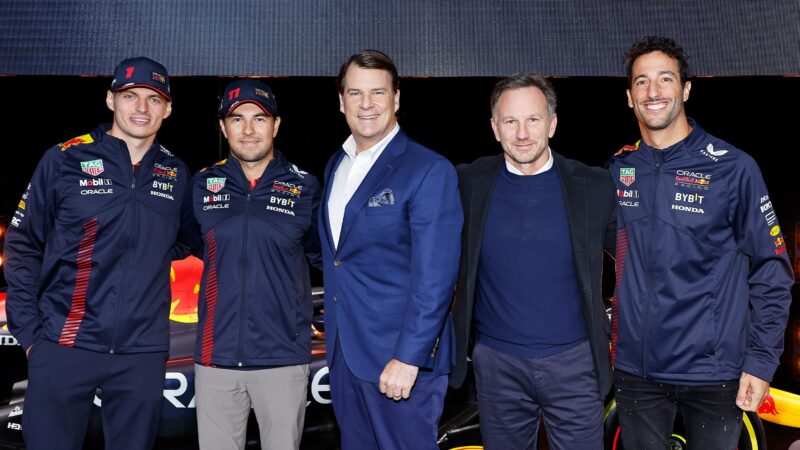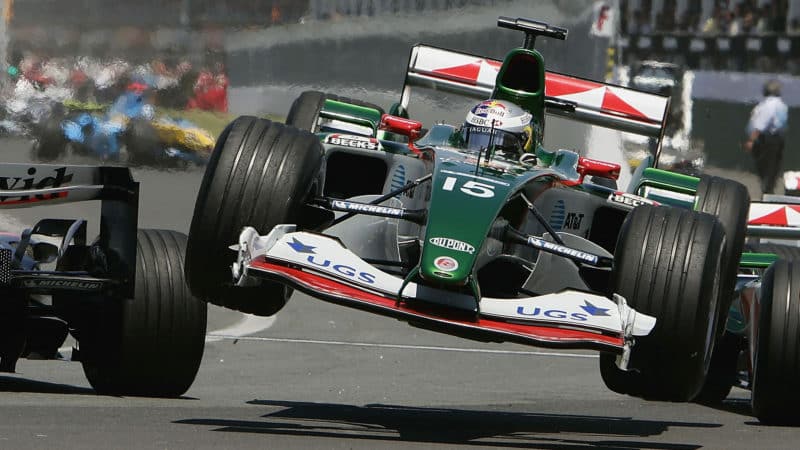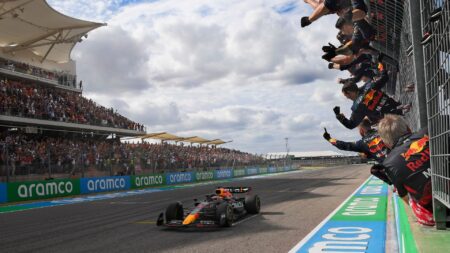But Ford’s involvement will go beyond that of just a sponsor. It is the second-largest manufacturer of hybrid powertrains in the world, and second-largest manufacturer of EVs in North America. That expertise will be offered to Red Bull as it develops battery cells and electric motors for its 2026 engine. Fords’s know-how will also be used in the engineering of the combustion engine, and for the complex software that manages the capture and delivery of power.
This is, after all, hardly Aston Martin whose wings appeared on the Red Bull engine cover by financial transaction alone. There is perhaps also a case of keeping up with its rivals: if GM is to get back on the grid, as per its Cadillac-branded entry with Andretti, would Ford really want to be left in a position where it could be portrayed as a mere advertiser by comparison, simply playing at it while the opposition got properly stuck in?
Consider finally the man behind it, Ford CEO Jim Farley. This is a man who races a GT40 very competitively and entirely for fun, much to the discomfort of his shareholders. He is a racer through and through and while such decisions should be made for cold, calculating commercial reasons, I thank goodness that sometimes they are not. He does make a good case for the deal, though.
“Ford’s return to Formula 1 with Red Bull Racing is all about where we are going as a company – increasingly electric, software-defined, modern vehicles and experiences,” said Farley. “F1 will be an incredibly cost-effective platform to innovate, share ideas and technologies, and engage with tens of millions of new customers.”

Jim Farley in For GT40 at Le Mans Classic
Richard Bord/Getty Images
As for Ford’s choice of partner, let’s not forget where Red Bull’s F1 team came from in the first place: for it was to Red Bull that Ford sold the Jaguar team that it had bought from Jackie Stewart. What’s more I’d be surprised indeed if there were not staff there today who can still remember when Ford used to sign their pay cheques.
It will be interesting to see what comes of the arrangement over the years to come. For those of us old enough to remember, we recall very well that it was Ford’s decision to bankroll Keith Duckworth’s innovative 3-litre V8 engine in 1967 that created the most successful race engine of all time, the only one that, in one form or another won every major motor race in the world, from the Monaco Grand Prix to the Indy 500 to the Le Mans 24 Hours.
And regardless of the heritage, it has to be healthy to have another major, credible manufacturer coming to Formula 1 especially as it’s not there just to paint blue ovals on the sides of Red Bulls and AlphaTauris too. With Audi already committed, GM trying to convince F1 its bid is meritworthy and Porsche known still to regard F1 as unfinished business, there could be exciting times ahead for the sport.




